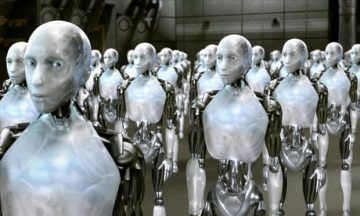Marcel Theroux in The Guardian:
 By a strange twist of fate, I read this book while on a visit to the Falkland Islands, where the British victory over Argentina in the 1982 war feels as though it might have happened last week. Outside Port Stanley, on treeless uplands whose names ring distant bells – Goose Green, Mount Harriet, Tumbledown – the conflict is still unofficially memorialised by chunks of crashed war planes and the wires of field telephones from a pre-digital age. Machines Like Me, Ian McEwan’s new novel, also turns in part on the Falklands conflict, eternalising a version of that year’s events, though in the book’s fictional world things have turned out rather differently.
By a strange twist of fate, I read this book while on a visit to the Falkland Islands, where the British victory over Argentina in the 1982 war feels as though it might have happened last week. Outside Port Stanley, on treeless uplands whose names ring distant bells – Goose Green, Mount Harriet, Tumbledown – the conflict is still unofficially memorialised by chunks of crashed war planes and the wires of field telephones from a pre-digital age. Machines Like Me, Ian McEwan’s new novel, also turns in part on the Falklands conflict, eternalising a version of that year’s events, though in the book’s fictional world things have turned out rather differently.
In the 1982 of the novel, the British navy sails from Portsmouth with calamitous results. A devastating Argentinian attack ends the war abruptly and the Falklands become Las Malvinas. The humiliation of defeat forces Margaret Thatcher from office, brings a very different politician to power, and triggers the country’s unexpected departure from Europe. This political and social upheaval feels like both reminiscence and prophecy. The counterfactual 1982 of the novel plays variations on our historical record and contains clear allusions to the present. “Only the Third Reich and other tyrannies decided policies by plebiscites and generally no good came from them,” the narrator reminds the inhabitants of post-referendum Britain.
…Machines Like Me belongs to the genre of speculative fiction, but in its narrow focus on morally ambiguous characters in a bleak cityscape it also owes a debt to film noir, sharing noir’s conviction that nothing is more human than moral inconsistency.
More here.
